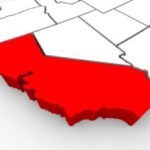Focus on Wisconsin
This month we travel north to the Badger State of Wisconsin, a Midwestern U.S. state with coastlines on two Great Lakes (Michigan and Superior) and an interior of forests and farms. Several beer companies are based in Milwaukee, and many offer brewery tours. The state is known as “America’s Dairyland” because it is one of the nation’s leading dairy producers, particularly famous for its cheese. Manufacturing, especially paper products, information technology (IT), cranberries, and tourism are also major contributions to the state’s economy.
Wisconsin’s geography is diverse having been greatly impacted by glaciers during the Ice Age with the exception of the Driftless Area. The Northern Highland and Western Upland along with a part of the Central Plain occupies the western part of the state, with lowlands stretching to the shore of Lake Michigan. Wisconsin is second to Michigan in the length of its Great Lakes coastline.
The highest natural point in Wisconsin isn’t a mountain- it’s actually a hill. Timm’s Hill is recorded at 1,951 feet. Due to Wisconsin’s mostly glaciated terrain, there aren’t a lot of craggy peaks. In exchange for leveling the landscape, glaciation has left the state with some of the most beautiful rolling hills, valleys, prairies and fertile farm fields.
Why Wayfair Legislation Is Helping States Survive The Pandemic
 Last year was not an easy one for a variety of reasons, the ongoing pandemic chief among them. 2021 has provided some relief, but COVID's economic impacts are still being felt by individuals, businesses and governmental organizations across the country.
Last year was not an easy one for a variety of reasons, the ongoing pandemic chief among them. 2021 has provided some relief, but COVID's economic impacts are still being felt by individuals, businesses and governmental organizations across the country.
According to a pair of Harvard economists, the pandemic would have cost the U.S. "at least 16 trillion" if it ended this fall. Given COVID numbers are still high in many areas, it's safe to say the pandemic is not over and its true cost will exceed their estimate. By how much is yet to be seen.
That said, some states have weathered the pandemic better than initially feared. This is largely thanks to legislation adopted following the 2018 Wayfair decision which allowed states to collect additional tax from online purchases.
For an overview of the Wayfair decision and its impact on state tax legislation, click here.
Wayfair Legislation And COVID-19
So, how has the Wayfair decision impacted states during these turbulent times? The most significant way is the adoption of economic nexus legislation.
The pandemic resulted in an explosion of online shopping in the spring of 2020, and it's largely persisted since. Those states that have economic nexus in place, which includes every state that has a general sales tax and some jurisdictions in Alaska, have seen a drastic increase in tax revenue from online sales tax collections, especially as many retailers have triggered economic nexus in states they previously did not have nexus in.
The final hold out states, Missouri and Florida, finally implemented economic nexus legislation earlier this year and while we cannot say for certain how large of an impact the pandemic had on that decision, it certainly offered some amount of incentive.
States that have had economic nexus since before the pandemic also made changes to their own nexus legislation. Several states have either reduced or removed the sales or transaction thresholds for triggering nexus in their states within the last year (or have otherwise expanded the nexus net), including Arizona, Illinois, and Tennessee.
While these moves have increased state's revenue streams, it's only further complicated the already complex online sales tax situation, especially for small online retailers.
We expect additional change to come as states continue to search for additional sources of revenue to make up for what has been lost due to the pandemic, and the proven success of Wayfair laws make them a prime target.
In the meantime, businesses should be preparing themselves for any online sales tax changes that may come down the pipeline by ensuring they are compliant now and will be in the future. Being proactive can save you thousands (or more) in fees later.
Do You Need Help With Your Online Sales Tax Compliance?
If you have questions about your tax liability from online sales or any other state sales tax compliance questions, please contact us today. We're happy to clarify any multi-state tax issues you're trying to navigate.
New California Competes Grant Program
Since 2013, when California eliminated its statewide enterprise zone tax credit and incentive programs, we have been following the evolution of the California Competes Tax Credit (“CCTC”) program, which seeks to award tax credits to companies locating to or expanding within California. The program has had its issues, certainly. Not the least of which is that few companies have been able to take advantage of the program, either because they do not engage in the type of expansion necessary, or because they are not paying income tax due to excess net operating losses, tax credits (i.e.; Research and Development Credits) or other reasons.
For this fiscal year, the Governor has included in his budget a new grant program called the California Competes Grant Program (“CalCompetes Grant Program”), which promotes that it will allow more companies to qualify and utilize cash grant funds (as opposed to tax credits) in the name of expansion in the state. The goal of this new program is to make funds available to companies which could previously not qualify for the tax credit, but might be making the necessary investments and could benefit from the grant instead.
The primary goal of the CalCompetes Grant Program is to incentivize businesses to choose California for investment and to stimulate the creation of quality, full-time jobs in the state. California’s goal is to attract out of state companies to the state and/or to keep companies from moving elsewhere.
Details of the Program
According to the Governor’s Office of Business and Economic Development (GO-Biz), the first application period for this program will be from January 3 to January 24, 2022. This application period has a cap of $120 million, increased from $80 million.Interestingly, up to $36 Million may be available to a single taxpayer. One of the following criteria must be met for a business to take advantage of the CalCompetes Grant program:
- Will create at least 500 new full-time jobs in California,
- Will make capital investments of at least $10 million,
- The project will take place in a area of high unemployment and/or poverty as defined in the California Competes Tax Credit regulations.
There are several evaluation factors that are considered. A few of them include:
- Number of jobs created or retained,
- Training opportunities offered to employees,
- Compensation paid to employees, including wages and fringe benefits,
- Extent of unemployment and poverty in current or proposed site location.
- Amount of investment
- Extent to which the grant influences the creation of new CA jobs.
Please click here for short synopsis from the state (LINK to PDF). Note that additional information will be forthcoming in the next few months. The next application period will take place from March 7, 2022 through March 28, 2022. Increased from $71.1 million, $104.7 is estimated to be available plus any remaining amounts.
What Does the Future Hold?
If your business is considering investing in new, full-time jobs in California or contemplating relocating some or all of your operations, this grant program might be good for you. Stay tuned to our future blogs for further updates on this new grant program. We are here to help with all of your multistate tax needs. Call us today!
What You Need To Know About The Taxation Of Streaming Services
[Originally published September 21, 2021. Updated February 2025]
When it comes time to relax with your favorite show, where do you go to find it? Over the last decade, more and more people have chosen to look online and utilize streaming services like Netflix and Hulu instead of relying on traditional cable or satellite TV.
This trend aligns with digital transitions in many industries, and like those other industries, it presents new tax challenges for regulatory agencies and streaming companies alike.
In this article, we’ll explore the brief history of streaming taxes, where we are today, and our predictions for the future. Here’s what we’ll be covering:
- A Brief History of Streaming Services
- Netflix’s impact and early competitors
- Rise of smart TVs and cord-cutting trends
- The Rise of Streaming Taxes in the U.S.
- Decline of traditional cable tax revenue
- State-by-state variations in streaming taxation
- The Expansion of Digital Taxation
- Growth of digital taxes across states
- City-level efforts to tax streaming services
- International Efforts to Tax Streaming Services
- Global approaches to digital taxation
- Case studies: Philippines and Canada
- The Future of Streaming Taxes
- Predictions for evolving tax policies
- Expected legislative changes
Not what you’re looking for? We can help. Reach out to us at info@milesconsultinggroup.com
1. A Brief History of Streaming Services
As the most famous of the streaming services, Netflix paved the way for those that followed in its wake. First offering its “Watch Now” video-on-demand service in 2007, Netflix now boasts more than 300 million paying subscribers, with over 89.6 million of those in the U.S. and Canada as of 2023.
Hulu followed soon after, launching in 2008. Over the past decade, streaming services like Disney+, HBO Max, and Peacock have entered the market, further expanding digital entertainment options.
With these services becoming more widely available—and televisions now featuring built-in “smart” functionality—many households have cut the cable cord altogether. Since 2015, the percentage of Americans who say they watch television via cable or satellite has dropped from 76% to 56% in 2021, according to the most recent Pew Research Center survey of U.S. adults.
2. The Rise of Streaming Taxes in the U.S.
As streaming services have gained popularity, traditional cable TV tax revenue has declined, prompting many states to impose new taxes on digital services. Today, around half of U.S. states have implemented legislation that adds a tax to streaming services, with more considering similar measures.
However, how states tax streaming services varies significantly. Here are a few standout examples:
- Florida: The state levies a Communications Services Tax (CST) on streaming services. As of 2021, this tax rate is 7.44% on providers' revenues, with local governments adding their own rates, often resulting in a total CST exceeding 13%.
- Kentucky: The state imposes a 6% sales tax on "prewritten computer software access services," which includes streaming services. This is not a special video tax but rather an inclusion of streaming under taxable services.
- Chicago, Illinois: The city extends its 11% Amusement Tax, originally designed for events like concerts and sporting events, to electronically delivered amusements, including streaming services.
- Iowa: The state classifies streaming services, including those bundled with packages like Amazon Prime, as "pay television," making them subject to applicable sales taxes.
- South Carolina: The state taxes streaming transmissions of television programs, movies, and music accessed via the internet, treating them as taxable communication services.
As states look for ways to recover lost tax revenue, more are expected to follow suit in the coming years.
3. The Expansion of Digital Taxation
The taxation of the digital economy has grown significantly in recent years, and holdout states are starting to jump on the bandwagon.
For example, Maryland recently enacted taxation on a variety of digital products and services. Other states considering similar measures include:
- Georgia, which introduced digital taxation legislation during this year’s legislative session.
- Missouri and North Dakota, both of which are exploring new ways to tax streaming platforms.
Cities are also stepping in to recoup lost revenue due to declining cable subscriptions. Some municipalities have even sued streaming services for lost tax income.
4. International Efforts to Tax Streaming Services
The issue extends beyond the U.S., as countries worldwide grapple with how to fairly tax digital services. For example:
- Philippines has implemented a 12% value-added tax (VAT) on digital services offered by non-resident tech giants, including streaming platforms, to create fair competition with domestic businesses.
- Canada has proposed a 5% tax on revenue generated by streaming services to fund local content, leading to legal challenges from major streaming companies.
As digital entertainment becomes increasingly global, many other nations are considering similar tax measures to regulate and profit from streaming services.
5. The Future of Streaming Taxes
As streaming platforms and other digital services continue to gain popularity, states and countries that have yet to implement taxation are likely to follow suit soon.
In just the last few years, we’ve seen major shifts in tax policies, and the next few years are expected to be just as tumultuous.
Need Help Understanding Streaming Taxes?
Do you have questions regarding the taxation of streaming services, or any other state tax issues, for that matter?
At Miles Consulting, we’re happy to clarify - this is what we do. Book a consultation, drop us a line, or send us an email at info@milesconsultinggroup.com.
Focus on Tennessee
This month, we travel east to Tennessee, the Volunteer State. It is the 36th largest state by area and the 16th most populous state. Nashville is home to the Grand Old Opry. Memphis, in the far southwest portion of the state, is home to Elvis Presley’s Graceland and the blues clubs of Beale Street. Sun Records resides in Memphis, which is where Elvis Presley, Johnny Cash, Roy Orbison, Carl Perkins, Jerry Lee Lewis and Charlie Rick began their recording careers.
Tennessee is home to the Great Smoky Mountains National Park, located in the eastern part of the state. It is the most visited national park in the country. Furthermore, the state is considered to be the most biologically diverse state without a coastline, boasting seven of the eight most ecologically rich rivers in North America. It has more than 325 species of fish, ranking the state first among all states in freshwater fish diversity. The state also has a diverse population of salamanders.
An Update On Cannabis Taxation In California
 As with any new or evolving industry, the taxation of cannabis in California has undergone rapid change over the last five years. California became the first state to legalize medical marijuana in 1996 and on November 8, 2016, the state's voters chose to legalize recreational use of marijuana. Since then, the taxation of cannabis within the state has been a hot button issue.
As with any new or evolving industry, the taxation of cannabis in California has undergone rapid change over the last five years. California became the first state to legalize medical marijuana in 1996 and on November 8, 2016, the state's voters chose to legalize recreational use of marijuana. Since then, the taxation of cannabis within the state has been a hot button issue.
Beyond adjusting tax rates, recent changes in the cannabis industry have simplified the regulatory and licensing oversight of the market and made it more readily accessible to medical marijuana patients who found the plant too expensive to buy after recreational cannabis was legalized.
In California, cannabis sales are subject to sales and use taxes, a 15% excise tax on retail purchases of cannabis and cannabis products and local cannabis business tax, which depends on the jurisdiction. Additional cannabis taxes are levied on harvested marijuana as it enters the commercial market with rates dependent on if the harvest is flowers, leaves or a fresh plant.
For businesses, this means that cannabis sales are very complex tax-wise and ensuring compliance is essential to continuing success, especially in such a highly regulated industry.
Earlier this year, the state created the Department of Cannabis Control to simplify oversight and licensing of cannabis businesses, reducing regulatory-related burdens and providing one resource for business and taxation support for cannabis businesses.
That said, we heavily recommend that businesses that are new to this industry to consult with professionals like Miles Consulting Group to assist with navigating these tax waters.
For consumers, California's cannabis taxes means that every purchase of cannabis or cannabis-related products of a $100 includes another $15+ of tax, depending on the location. In Los Angeles, for example, a $100 purchase of cannabis totals $138.52 after tax, as calculated and shared by Leafy. The amount of tax added onto each sale has proved to be as harmful and it is beneficial for the state. While the tax revenue has been beneficial for the state's budget, a thriving marijuana black market continues to exist as recreational users look to dodge the heavy taxation on legal purchases.
This taxation also made it difficult for low-income medical users of the plant to acquire it. Under the legalization legislation, marijuana was taxed at the same rate, regardless of whether it was sold or if it was donated to a non-profit for distribution to those who needed it most. As a result, these programs suffered, but the passage of California Senate Bill 34 amended this tax issue and created a legal pathway for cannabis companies to participate in these programs without needing to apply a portion or all of the taxation levied on sales.
California has certainly blazed a trail in regards to legal recreational cannabis and its taxation, but other states are also walking this path as well.
As of September 2021, 18 states have fully legalized cannabis, with another 13 states having decriminalized its use. More states have legalized medical marijuana, with only five states banning its use in any form for both medical and recreational purposes.
States that have legalized marijuana have either already levied an excise tax or are in the process of doing so. Rates depend on the state, with some utilizing a system that places a certain percentage of tax per ounce, while others tax based on the amount of THC in the products or levy different rates based on the type of product.
As a result, consumers and businesses will have very different experiences with cannabis taxes based on the location of their business or where they are making their purchase. The different systems make direct comparison difficult, but Washington, with an excise tax rate of 37%, is generally considered the most expensive state to buy recreational cannabis in.
As we previously stated, companies doing business in this industry should be especially cautious when it comes to collecting and remitting taxes on their products. If you have questions, Miles Consulting Group can help.
Do you have questions regarding the taxation of cannabis, or any other state tax situations? If so, please contact us today. We're happy to clarify any multi-state tax issues you're trying to navigate.
California Competes Tax Credit – An Update
Tax Incentives in General
Statutory tax credits are helpful to businesses looking to expand their operations within a state. As is often headlined in mainstream media, states compete with one another to entice companies to build plants, new headquarters operations, etc. within their state. And companies (particularly large ones) are happy to be courted for these often lucrative incentives which can include income tax credits, sales tax rebates, alternative financing, property tax incentives and infrastructure improvements – to name a few.
But over the years, state tax incentive programs have been criticized by many as “corporate giveaways” because companies often receive the tax breaks but don’t live up to the agreed upon investment (generally headcount). When companies fail to meet their milestones, it is often difficult for states to claw that money back and states are left to decide how to deal with the shortfall.
Are Remote Workers A Tax Liability? It Depends.
 Are your employees still working remotely? When the pandemic first hit, many businesses were forced to transition to a remote working model for safety reasons.
Are your employees still working remotely? When the pandemic first hit, many businesses were forced to transition to a remote working model for safety reasons.
In the time since, some companies have returned to the office, while others have adopted a hybrid model or continued with remote working due to ongoing concerns regarding COVID-19 variants.
Regardless of your specific situation, one thing that every company should be paying close attention to is how these workers can impact tax obligations. In this article, we'll share updates to the situation and how they might impact your business.
In previous posts, we've delved into the history of this situation. The short version of the story is that ordinarily, remote workers that live in a different state than they work can create "nexus," which is the amount of contact from a company needed in order to be obligated to collect sales tax in a state, or to be subject to income tax or gross receipts type taxes.
Due to the pandemic, many states chose not to assert nexus on companies whose employees were working remotely specifically due to the pandemic, while others simply waived these nexus obligations for a period of time. Other states did not offer guidance at all.
Now, fast forward to today. Similar to other pandemic-era tax waivers or forgiveness programs, these remote working tax programs may soon be ending (or have already ended) and businesses will be required to deal with the full brunt of the tax liabilities created by their remote employees.
Starting July 1, Pennsylvania resumed enforcement of its pre-pandemic telework tax policy, which includes corporate income tax, withholding tax and sales and use tax.
New Jersey made headlines when its Division of Taxation released guidance stating that the temporary rules put in place, that waived certain tax obligations created by remote workers, will be lifted starting on Oct. 1. This guidance applies to sales tax and business tax purposes, as well as employer income-tax withholdings.
A long-standing situation in New England also saw an update recently. In June, the U.S. Supreme Court denied a motion for leave from New Jersey, which challenged controversial regulations from Massachusetts. These regulations required that nonresident employees who worked in the state prior to its state of emergency would have to source their wages to Massachusetts, "in the same proportion as immediately before the pandemic, regardless of the location from which these employees telecommuted to Massachusetts."
While many workers are hoping to stay remote, a recent survey by Bloomberg Tax & Accounting shows that under "normal" circumstances, a majority of states would find "a minimal number" of remote workers who do not conduct solicitation activities would be enough to create nexus. Mississippi was the only state to respond that a remote employee would not create nexus under any of the circumstances included in the survey.
In the long run, the pandemic has undoubtedly pushed many businesses towards a remote or hybrid work model, but there will be tax ramifications to be dealt with. To stay ahead of these obligations and ensure compliance, companies must be proactive about their tax liabilities. That's where Miles Consulting can help.
To stay on top of your tax obligations due to remote workers, or any other state tax situations, please contact us today. We're happy to clarify any multi-state tax issues you're trying to navigate.
Focus on Kansas
This month brings us to the center of the country, the Great Plains state of Kansas. Kansas is a Midwestern state that epitomizes the U.S. Heartland with its Great Plains setting of rolling wheat fields. For thousands of years, what is now Kansas was home to numerous and diverse Native American tribes. Tribes in the eastern part of the state generally lived in villages along the river valleys. Tribes in the western part of the state were semi-nomadic and hunted large herds of bison.
The western two thirds of the state, lying in the great central plain of the United States, has a generally flat or undulating surface, while the eastern third has many hills and forests. The land gradually rises from east to west. It is a common misconception that Kansas is the flattest state in the nation. In fact, Kansas has a maximum topographic relief of 3,360 ft, making it the 23rd flattest U.S. state.
Is Wayfair Simplification On The Horizon?
 If you're a business owner, accountant or involved in the tax world in any way, you've undoubtedly been made aware of the Wayfair decision.
If you're a business owner, accountant or involved in the tax world in any way, you've undoubtedly been made aware of the Wayfair decision.
In short, that decision, which said that South Dakota's economic nexus law was constitutional and opened the door for other states to do the same, effectively made it easier for companies to create nexus in a state for sales tax purposes, thus creating a collecting and filing responsibility.
Over three years later and every single state that has a general sales tax has implemented some form of Wayfair-related legislation, whether economic nexus or marketplace facilitation. However, because each state has the freedom to do so independently, tax rates and the triggers for these Wayfair laws vary wildly. For businesses, this lack of cohesion has created a tax burden that, for some, is nearly unbearable.
As previously mentioned, much of the complexity regarding Wayfair laws comes from the lack of uniformity on a national scale. However, additional complexity can be found in the application of this legislation, with many states also utilizing different components for measurement (gross sales vs. taxable sales) for Wayfair thresholds, on top of thresholds that differ state to state.
The other problem comes from the catch-22 that Wayfair legislation has created for online retailers. Companies need a certain amount of sales to keep making a profit, but if they do too much business in certain states, they may trigger economic nexus, resulting in additional money spent to stay tax compliant. To stay ahead of these costs, retailers need to do more business, but that may result in additional tax liabilities.
Previously innocuous things, like Black Friday, surges in online shopping and tax holidays, have suddenly become hidden traps for online retailers. A sudden surge in business can get these retailers caught in the sticky web of economic nexus and leave them unprepared for the tax consequences that follow.
The final hold-out state enacted Wayfair-related legislation earlier this year. As a result, remote retailers face economic nexus, marketplace facilitation or both in 46 states, plus Washington D.C. and Puerto Rico.
Ever since the Wayfair decision, various entities have proposed simplification solutions but there are more calls now than ever thanks to the pervasiveness of Wayfair laws.
The Streamlined Sales Tax Project and the resulting Streamlined Sales and Use Tax Agreement are two such efforts and actually pre-date the Wayfair decision. However, while the agreement proved popular in certain circles, only about half of states have adopted it since its implementation, limiting its effectiveness in regards to the Wayfair situation.
Companies like Etsy, which recently asked sellers on its platform to join it in advocating for a federal solution, have also spoken out regarding the increased burden Wayfair creation.
Over the last three years, some states, including Alabama, Louisiana and Texas have taken steps to simplify tax remittance for remote sellers. Several have also adjusted economic nexus thresholds to provide additional safe harbor for smaller business more heavily impacted by Wayfair legislation. (That said, other states have widened the net instead.)
Legislative bodies have also reviewed Wayfair legislation, with many acknowledging the complication these laws create but stopping short of proposing a specific solution.
However, despite all the discussion, there remains no overarching solution to the complexity of Wayfair legislation as of now. As states continue to feel the effects of the pandemic and look to the taxation of online retail as a source of income, it's unlikely many will want to make concessions on their own Wayfair-related legislation.
While these conversations continue, retailers will have to deal with the ramifications. To stay tax compliant, businesses need to stay proactive about their tax liabilities and seek professional assistance if the burden becomes too great to bear on their own.
We answer questions around this topic daily - so if you call us to ask questions, you're in good company!
If you have questions regarding your online sales tax liabilities, or any other state-related tax questions, please contact us today. We're happy to clarify any multi-state tax issues you're trying to navigate.
























